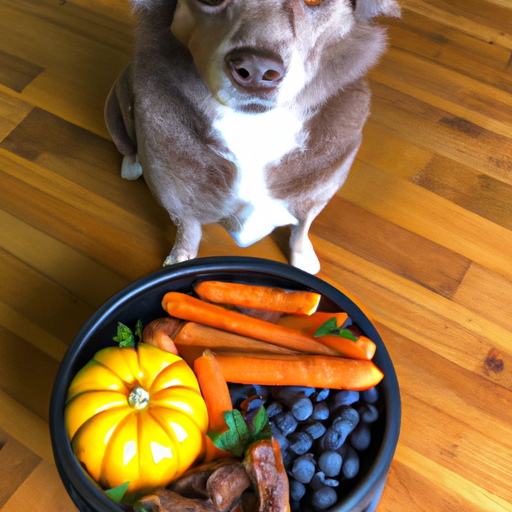As a dog caregiver, one of the most important tasks on your list is to ensure that your furry friend gets the best and safest food. The dog food market is flooded with countless options, but have you ever wondered if our four-legged friends can share some of our table scraps? The answer is a resounding yes, but with a few caveats. In this detailed guide, we’ll explore the human foods that are safe for dogs.
1. Proteins for Power
Dogs are omnivores, meaning they can eat both meat and plant-based foods.
1.1. Chicken and Turkey
Cooked, unseasoned chicken, and turkey are excellent sources of lean protein for dogs. However, make sure to remove any excess skin and bones.
1.2. Salmon and Tuna
Salmon and tuna are rich in omega-3 fatty acids, which promote a healthy coat and skin. Serve them cooked and boneless.
1.3. Eggs
Eggs are safe for dogs as long as they are fully cooked. They provide an excellent protein boost.
2. Fruits and Vegetables
Certain fruits and vegetables are not only safe for dogs but also beneficial.
2.1. Apples
Apples are a good source of fiber, vitamin A, and C. Just be sure to remove the seeds and core.
2.2. Carrots
Carrots are low in calories and high in fiber and vitamins. They are also good for your dog’s teeth.
2.3. Blueberries
Blueberries are packed with antioxidants and fiber. They can be used as a healthy treat.
3. Grains and Cereals
While not everyone agrees on this, many experts believe that dogs can digest certain grains and cereals.
3.1. Rice and Pasta
Both white rice and pasta can be a good source of energy for your dog. Serve them cooked and unseasoned.
3.2. Quinoa
Quinoa is a high-protein grain that is safe for dogs when cooked.
4. Dairy Products
While some dogs are lactose intolerant, others can benefit from certain dairy products.
4.1. Cheese
Small amounts of cheese can be a great treat for dogs, as long as your dog isn’t lactose intolerant.
4.2. Yogurt
Plain, unsweetened yogurt can be a healthy treat for dogs. It’s high in calcium and protein.
5. Nuts and Seeds
Certain nuts and seeds can be beneficial to dogs.
5.1. Peanut Butter
Unsalted and sugar-free peanut butter can be a great source of protein and healthy fats.
5.2. Pumpkin Seeds
Cooked pumpkin seeds can be a fun treat that also helps with deworming.
6. Food to Avoid
There are several foods that are harmful to dogs. Here are some of the most common ones:
| Food | Why It’s Harmful |
|---|---|
| Chocolate | Contains theobromine, which dogs cannot metabolize effectively |
| Grapes and Raisins | Can cause kidney failure |
| Onions and Garlic | Can cause digestive issues and damage red blood cells |
| Avocado | Contains persin, which can cause vomiting and diarrhea |
7. Feeding Guidelines
Always introduce new foods gradually and in small amounts, and observe your dog for any adverse reactions. Remember to balance your dog’s diet and not to overfeed them. Treats, including safe human foods, should not constitute more than 10% of your dog’s daily calorie intake.
8. FAQs
Can my dog eat citrus fruits?
Citrus fruits like oranges and lemons are generally safe for dogs, but they may cause digestive upset.
Can my dog eat popcorn?
Unsalted, unbuttered, air-popped popcorn can be a low-calorie treat for your dog. Do not give them unpopped kernels.
Do dogs need variety in their diet?
While dogs do enjoy variety, they need a consistent and balanced diet. Always consult with your vet before making any major changes to your dog’s diet.
Caring for a dog means knowing what’s on their plate. By understanding what foods dogs can eat, you can ensure you’re providing the best for your furry friend.



